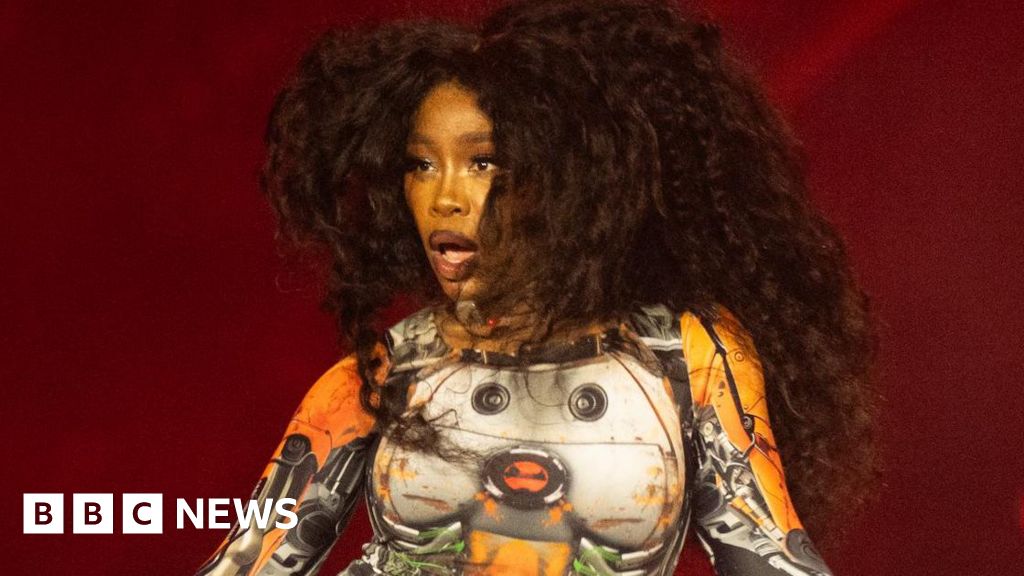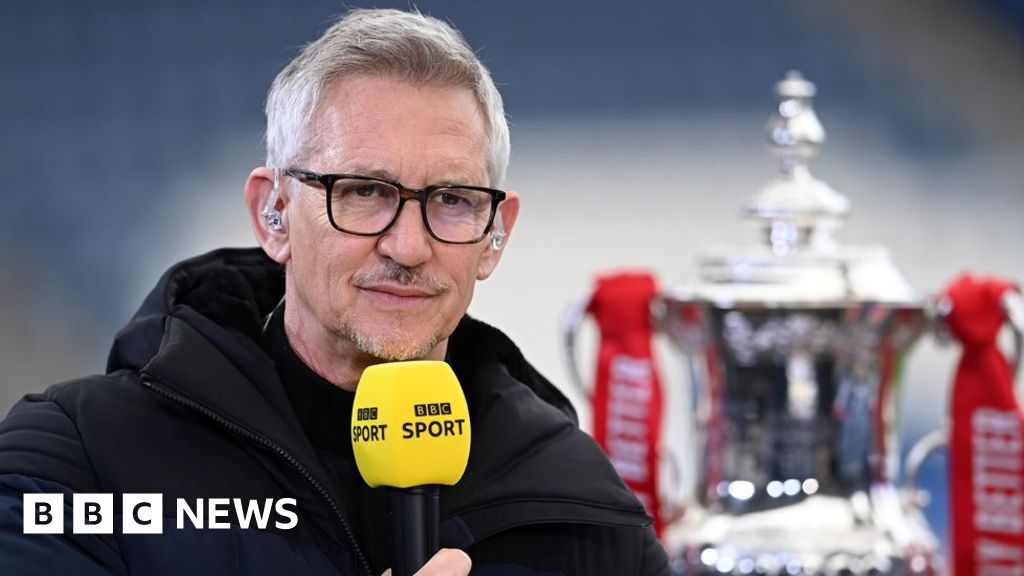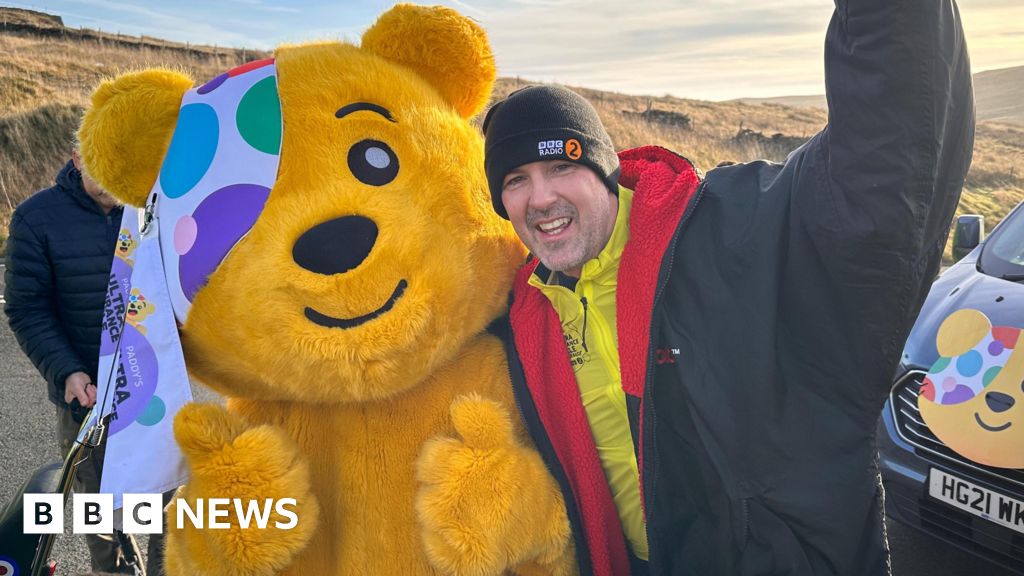ARTICLE AD BOX
By Ian Youngs
Entertainment & arts reporter
Image source, Ant Robling
Image caption,Jelani D'Aguilar (left) and Misha Duncan-Barry star in the play My Voice Was Heard But It Was Ignored
When Nana-Kofi Kufuor was working in a pupil referral unit, where children excluded from mainstream schools are taught, a teenage boy once produced a knife to stab a fellow student.
"He ended up kicking off and I had to restrain him," recalls Kufuor.
"It ended up with me and him in the canteen alone and there were police outside ready to arrest him. He was telling me, 'I'm not going to go quietly.'
"He was like, 'So, are we going to do this together?' And I said, 'No, I can't, I'm not going to fight the police with you.'
"He just didn't understand, because previously I had always been there to protect him.
"I just remember the look he gave me when the police dragged him out. He was never the same afterwards."
Even though Kufuor knew he shouldn't and couldn't have stood between the boy and the police, the incident played on his mind.
So much so that it inspired him to write a play that puts a 15-year-old boy and his teacher in a similar situation.
Image source, Ant Robling
Image caption,Writer Nana-Kofi Kufuor is also working on the BBC's rebooted Waterloo Road
My Voice Was Heard But It Was Ignored is Kufuor's first full play and has its premiere at Leeds Playhouse on Thursday before going on tour.
Writing it helped Kufuor process what had happened. "It reinforced that I felt like I was in the right," he says.
"And then the more I speak to people, it's like, yeah, there was nothing I definitely could have done.
"But just in that moment, it weighed heavy on my heart, and it sort of weighed heavy on my heart for a while afterwards."
In the play, the confident and confrontational Reece ends up locking his middle-class teacher Gillian in their classroom.
The pair tussle entertainingly over who has the power and authority in the student-teacher relationship. It's a relationship that has changed for the better in many ways over the years, but has become more complicated in others.
'Enough is enough'
"How much do teachers do now, compared to 20 years ago?" Kufuor asks. "They're like parents now. I've worked in education and you do so much more than when I was a kid. Or was it just I wasn't one of the kids that had to have that extra help?
"Coupled with Covid, the role of a teacher is now like a parent, a psychiatrist, a guardian, emotional welfare. I just wanted to see what it was like if a teacher said, 'No, enough is enough, actually. I don't have to protect you.'"
The writer didn't just want to examine where teachers must draw the line between being protector and policeman.
"I also wanted to have the conversation of, who protects whom in the context of a black woman and a black man?
"He [Reece] says, 'Well, it's not about you being a teacher, it's about you being a black woman. You should protect me anyway.' And that's where the conversation really begins."
Although Reece argues his teacher should defend him because they are both black, he also tells her she acts more like a white person.
They debate whether one black person can be "more black" than another, because of their upbringing or their connection with their heritage or their sense of their own identity.
'Gatekeeper of blackness'
The playwright is from Stockport, Greater Manchester, where he grew up in a predominantly white area while going to Ghanaian parties with his family.
"When did this become a thing of the sort of gatekeeper of blackness?" he asks.
"The conclusion I've come to, really, is there's no perfect way to be black. There's no way to be black. It's just you are black. That's just the end of the conversation. No-one can take that away from you but people can use that against you.
"So it's an interesting thing. For me, I'm just happy in who I am."
Kufuor went from Stockport to the University of Cumbria to do a film and television degree. While doing a master's in screenwriting at Salford University in 2017, he entered a BBC Radio 1Xtra competition to write a one-minute monologue.
"They were choosing six people and they rung me and said, 'Unfortunately you didn't get through'," he says. "And then I got a phone call 10 minutes later and they said, 'We're going to make you the seventh one.'"
Image source, Ant Robling
Image caption,The play is touring 10 English theatres in November
The resulting film was watched by the head of new writing at Manchester's Royal Exchange theatre, who invited Kufuor to a writers' group. But he had his heart set on writing for the screen.
"She kept ringing me for like five weeks saying, 'Are you going to come tonight?' I was like, 'No, I really don't want to write plays. I've told you before, but thank you anyway.'
"I said to her, 'Theatre's not really for me and I never really see anyone who looks like me in these spaces and I never see black plays and that.'
"She said, 'Do you have a voice?' I said, 'Yeah.'
"'Well,' she said, 'then it deserves to be heard.'
"That kind of stuck with me a little bit and I said, 'All right then, I'll give it a go.'"
Sparking debate
Kufuor is still hoping to write for the screen - specifically for the BBC's rebooted Waterloo Road, where he is currently a story researcher.
That means he goes into schools to get ideas for storylines. "What's the drama in school? What are the problems? What are the issues?
"The way this show is looking is, we don't want to make teachers look bad," he says. "We want to make teachers look like heroes because they are. We want to show how much these people do day in, day out."
First, My Voice Was Heard But It Was Ignored is being staged by the Red Ladder touring theatre company. And the writer does not want his voice to be ignored.
"It has a lot of very black themes, but I feel like those black themes are very universal," he says of the play.
"It's that sense of, where do I belong? Where do I fit in? Anyone can come in and feel like, that's relevant to me, even though I'm not a black man or a black woman.
"I want to be in the foyer or in the bar and hear people having conversations. 'Oh, he was wrong.' 'Well actually no, she was wrong.' That's what I like the most, sparking debate."

 3 years ago
35
3 years ago
35








 English (US)
English (US)